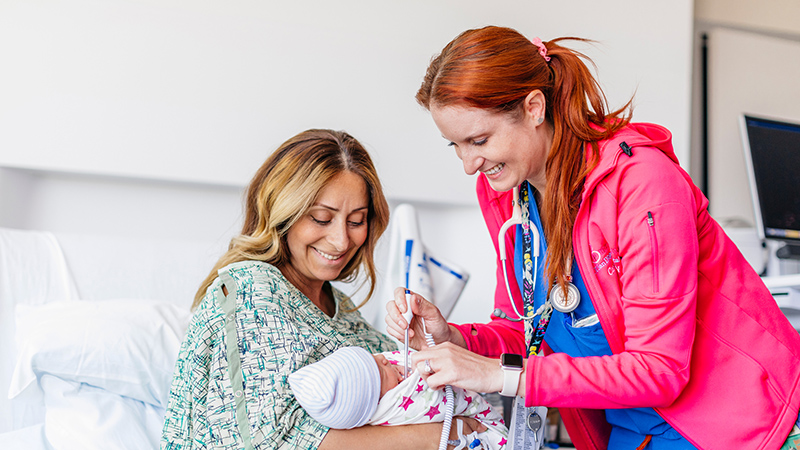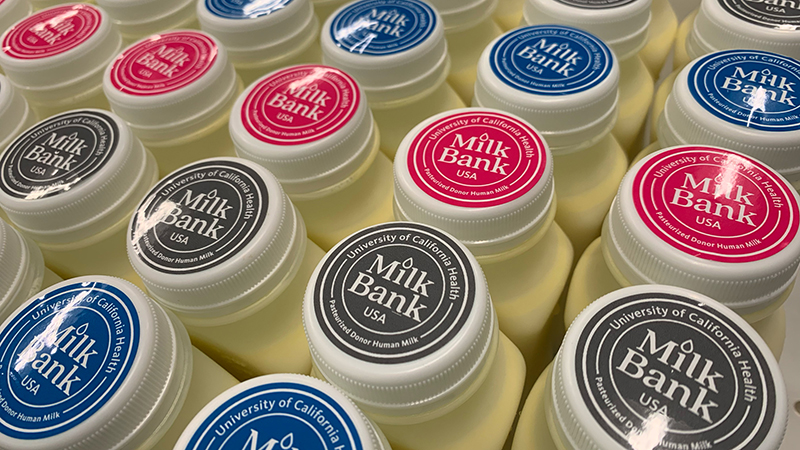AB 3059 is signed into law, allowing more babies in need to access life-saving nutrition
Share This Article

By the UC Health Newsroom
The University of California and Assemblymember Akilah Weber are excited to see Governor Newsom sign AB 3059 into law. The bill, authored by Assemblymember Weber and sponsored by the University of California, will establish parity for coverage of medically necessary donor milk, a lifesaving nutrition source for babies and families in need.
“I’m excited to see Governor Newsom sign AB 3059 into law,” said Assemblymember Weber, the bill’s author. “Addressing disparities in health care starts with ensuring access to essential nutrition. With the mortality rate for Black infants being three times higher than that of white infants, it’s crucial we address health care inequities beginning at birth. This bill represents the final step in expanding access to donor milk for all families, regardless of their insurance, and making a significant difference in health outcomes for newborns and their families.”
Access to donor milk is a lifeline in the NICU. When a parent’s breastmilk is not available or sufficient, pasteurized donor human milk is the next best nutrition source to support the health and survival of deficient birth-weight infants. Donor milk is sourced from lactating individuals who undergo thorough screening and donate excess milk to accredited milk banks, where it is then processed, pasteurized, tested and distributed to NICUs, hospitals and families when it’s medically necessary.
Donor milk also significantly reduces the incidence of life-threatening bowel disease, necrotizing enterocolitis (“NEC”), which has a mortality rate as high as 50%. The incidence of NEC is around 60 percent higher for Hispanic and Black infants when compared to white infants, with factors like lack of donor milk, under-resourced NICUs, and transportation barriers impacting the inequitable incidence of NEC. AB 3059 will expand access to donor milk and help close racial and socioeconomic disparities in infant care.
“Creating greater access to donor milk is vital for the health and well-being of newborns and their families,” said University of California President Michael V. Drake, M.D. “We applaud Assemblymember Weber for her leadership on AB 3059, and we are grateful that the Governor has signed this important bill into law. At the University of California, we are excited to work together toward a future where infants have easier access to this essential nutrition, especially those whose families are most vulnerable.”

AB 3059 will define donor milk as an essential health benefit under commercial insurance plans, establishing coverage parity with Medi-Cal plans. The bill also removes a regulatory barrier, allowing hospitals to distribute donor milk more easily. Previously, hospitals had to obtain a tissue bank license to distribute donor milk. With AB 3059 now law, hospitals can distribute donor milk to babies in the NICU if the donor milk comes from a milk bank with a tissue bank license, like the University of California Health Milk Bank.
The UC Health Milk Bank, operated by UC San Diego Health, is one of just three milk banks in California. A breastmilk collection depot also just opened at UCR Health, which aims to drive milk donation and donor milk use in the region.
“I’ve seen, first-hand, how donor milk improves the health, and even survival, of babies in the NICU,” said Dr. Lisa Stellwagen, FAAP, Medical Director of the UC Health Milk Bank. “I’m thankful for Governor Newsom’s signature of AB 3059, which will have a significant impact in ensuring hospitals can easily offer donor milk to babies who need it. With this new law, California is making major strides in improving health outcomes for babies in NICUs across the state.”
